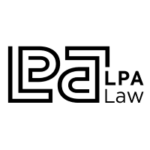-
Which factors bring an individual within the scope of tax on income and capital gains?
Citizenship is not relevant in determining the tax residence in Austria. Individuals who have their place of residence or their habitual abode in Austria are subject to unlimited tax liability (= tax residency according to Austrian tax law). A person has his place of residence wherever he or she has a dwelling under such conditions that would lead to the conclusion that he intends to keep and continue to use that dwelling (any place which, based on its size and furnishing/facilities, may serve as a home). An individual’s habitual abode is at the place where he or she stays under circumstances which allow the assumption that the stay is not only temporary. As a general rule, tax residence is deemed to exist if the individual’s stay in Austria exceeds six months (183 days). Once these six months have expired, tax residence is deemed to have commenced at the beginning of the stay in Austria. The worldwide income and assets of individuals whose tax residence is located in Austria are subject to income tax. As Austrian tax law considers capital gain to be a source of income, the same applies to capital gains.
There is special regime for holidays home (70 days rules) that avoids tax residence if certain criteria are met (see question 14.).
-
What are the taxes and rates of tax to which an individual is subject in respect of income and capital gains and, in relation to those taxes, when does the tax year start and end, and when must tax returns be submitted and tax paid?
All individuals that are tax resident in Austria are subject to Austrian income tax on their worldwide income, including income from agriculture and forestry, trade or business, self-employed work, employment, investments and rents and leases.
Such income is subject to a progressive income tax rate as follows:
€0 – €12,816 (0% income tax),
€12,816 – €20,818 (20%),
€20,818 – €34,513 (30%),
€34,513 – €66,612 (40%),
€66,612 – €99,266 (48%),
income over €99,266 (50%), and
income over €1,000,000 (55%).
Income tax on employment income (= wage tax) is withheld at source and remitted to the tax office by the employer.
Capital income, such as dividends, interest and sales profits, trigger 27.5% capital gains tax in Austria, except for interest which is derived from bank deposits and non-bonded receivables at a financial institution (tax rate 25%).
There are no special regimes in place for foreign-source income or carried interest.
The tax year is the calendar year. Income tax returns can be filed with the local tax office after the end of each calendar year. The filing of a yearly income tax returns is only required if the taxable income of the Austrian tax resident individual exceeds €12,816. Tax returns have to be filed by April 30 of the following year (paper form) or end of June of the following year (electronic filing). In case the taxpayer has only employment income where wage tax has already been withheld, a tax return can be filed within five years after the end of the tax year.
Income tax is withheld from wages, interest, and dividends. Any income tax on other types of income is payable quarterly, with an annual return filing requirement. The final tax will be assessed by an assessment note and is payable within about one month after tax assessment.
The municipal tax amounts to 3% of the tax base. The tax base is the total wages paid to the employees of a permanent business establishment of the enterprise in a calendar month. Only those permanent business establishments that are located in an Austrian municipality are relevant.
-
Does your jurisdiction provide advantageous tax regimes for individuals directly investing in or holding certain types of assets from an income tax or capital gains tax perspective?
Austria does not specifically have tax regimes that provide advantageous treatment for individuals investing directly in or holding particular types of assets. Special regimes that would exempt capital gains from taxation after a certain holding period were in discussion but had not been implemented.
-
Are withholding taxes relevant to individuals and, if so, how, in what circumstances and at what rates do they apply?
Income from employment and capital, such as dividends, interest or sales profit, is subject to a withholding tax. Income from employment is taxed at the regular progressive rate (see question 2) and income from capital is taxed at a flat rate of 27,5%.
-
How does the jurisdiction approach the elimination of double taxation for individuals who would otherwise be taxed in the jurisdiction and in another jurisdiction?
Austria has concluded double tax treaties with more than 90 countries as bilateral measures to avoid double taxation for income tax purposes.
In addition, double tax treaties exist with a certain number of countries with regard to inheritance and/or gift taxes.
Subordinately, Austria has taken unilateral measures to credit foreign taxes under its own domestic law.
The Multilateral Convention to Implement Tax Treaty Related Measures to Prevent Base Erosion and Profit Shifting (MLI) was ratified by Austria as the first country to do so on 22 September 2017 and entered into force for Austria on 1 July 2018. Austria has also opted for the application of the arbitration clause in Part VI of the MLI. Currently, the majority of Austria’s double tax treaties fall within the scope of the MLI.
-
Is there a wealth tax and, if so, which factors bring an individual within the scope of that tax, at what rate or rates is it charged, and when must tax returns be submitted and tax paid?
Austria does not levy any wealth tax. In the context of recent elections this topic had been raised by one party, but is unlikely to be introduced.
-
Is tax charged on death or on gifts by individuals and, if so, which factors cause the tax to apply, when must a tax return be submitted, and at what rate, by whom and when must the tax be paid?
Austria does not levy inheritance or gift taxes (in case of real estate transfers transfer taxes apply though). In the context of recent elections this topic had been raised by one party, but is unlikely to be introduced. However, there are reporting obligations for donations.
Pursuant to Sec 121a of the Austrian Federal Fiscal Code (“BAO”) donations inter vivos and donations to a special cause (“Zweckzuwendungen”) must be notified to the tax office, if one of the following assets is received:
- cash;
- capital claims;
- shares in a corporation;
- interest in a (silent) partnership;
- businesses units;
- movable tangible assets; or
- intangible assets;
and the recipient, the donor, the person effecting a special cause or the person encumbered with a special cause upon receipt has an Austrian residence, habitual place of abode, or legal seat or place of management in Austria.
The reporting obligation pursuant to Sec 121a BAO is not triggered in case the market value of the assets transferred among non-related parties does not exceed an amount of EUR 15,000 within a period of 5 years. The threshold for relatives is EUR 50,000 within a year.
The reporting obligation applies for the following persons:
- the recipient of the donation,
- the donor, and
- attorneys and public notaries involved in the transaction.
There is only one reporting necessary by one of these persons within three months after the donation occurs. A fine of up to 10% may be triggered, if intentionally no notification is made. Failure to make such notification can only be cured within 15 months.
-
Are tax reliefs available on gifts (either during the donor’s lifetime or on death) to a spouse, civil partner, or to any other relation, or of particular kinds of assets (eg business or agricultural assets), and how do any such reliefs apply?
Austria does not levy gift tax (see under 7).
-
Do the tax laws encourage gifts (either during the donor’s lifetime or on death) to a charity, public foundation or similar entity, and how do the relevant tax rules apply?
Austria does not levy gift tax (see under 7). However, charitable contributions to certain institutions, are deductible up to 10% of the current year’s taxable income. The list of eligible institutions is published on the Austrian Ministry of Finance’s website.
-
How is real property situated in the jurisdiction taxed, in particular where it is owned by an individual who has no connection with the jurisdiction other than ownership of property there?
The transfer of Austrian real estate triggers real estate transfer tax (Grunderwerbsteuer). The ownership of the real estate establishes such tax liability, regardless of the owner’s residence. In the case of a purchase of Austrian real estate the tax base is generally the purchase price, and the tax rate amounts to 3.5%. In addition, a 1.1% court registration fee is assessed, based on the fair market value of the property transferred.
A reduced real estate transfer tax at a rate of 0.5% of the property value of the real estate is triggered if Austrian real estate is part of the assets of a corporation or a partnership, and at least 95% of the shares in the corporation or the interests in the partnership are transferred or pooled in the hand of a single buyer or in the hand of a tax group. The same applies in the case of a partnership holding Austrian real estate if at least 95% of the interests in the partnership are transferred to new partners within a period of five years. In such case no court registration fee of 1.1% applies.
Additionally, Austrian municipalities impose an annual tax on real estate (Grundsteuer). The assessment base is 0.1% to 0.2% of the assessed value of the real estate and this amount will be multiplied by the assessment rate determined by each municipality, which may range up to 500%. The annual maximum amount of the real estate tax is 1% of the assessed value. Instalments will be levied quarterly on 15 February, 15 May, 15 August, and 15 November.
-
Does your jurisdiction have any specific rules in relation to the taxation of digital assets?
Currently, there are no specific tax rules addressing digital assets. However, since the Austrian Income Tax Reform Act in 2022, income from cryptocurrency holdings is considered income from capital assets and is taxed at a rate of 27.5% in accordance with the existing general tax law rules for the taxation of capital assets.
In accordance with Sec 27b Income Tax Act (EStG) the definition of income from cryptocurrency holdings includes both current income (“fruits”) and realised gains, regardless of any holding period (Sec 27b para 1 EStG). Current income encompasses remuneration for transferring cryptocurrencies, such as interest from lending or fees from providing liquidity in Decentralised Finance (DeFi) processes like liquidity mining (Sec 27b para 2 no. 1 EStG). Additionally, cryptocurrency obtained through mining or operating a master node is treated as current income (Sec 27b para 2 no. 2 EStG).
Realised gains include income from converting cryptocurrencies into euros, other legal tender (e.g., USD), or goods and services, as well as the loss of Austria’s right to tax profits from disposals (i.e. exit taxation) (Sec 27b para 3 EStG), whereas trading one cryptocurrency for another is not taxed, and acquisition costs of the transferred cryptocurrency are carried over. Ancillary acquisition costs reduce taxable profit, but other expenses (e.g., electricity) are not deductible unless opting for taxation under the progressive income tax rate (Sec 6 para 14 EStG). For disposals after 31 December 2022, acquisition costs are calculated using the moving average price (Sec 2 Cryptocurrency Regulation).
The new tax rules apply to cryptocurrency holdings acquired after 28 February 2021 (“new assets”) and entered into force on 1 March 2022. Holdings acquired earlier (“old assets”) generally remain under the prior regime (taxable only if cryptocurrencies are sold within a holding period of one year) but are subject to the new rules if used to generate current income (e.g., staking or airdrops). Liquidations before 1 March 2022 can be taxed voluntarily under the new regime, applying the special tax rate for cryptocurrencies.
-
Are taxes other than those described above imposed on individuals and, if so, how do they apply?
VAT applies to the net turnover of the entrepreneur at a tax rate of 20% (10% or 13% for certain tax-privileged turnover). If the total turnover in a calendar year does not exceed the small-business limit (EUR 55,000 starting from 1 January 2025), there is an exemption from VAT in Austria under certain conditions.
If you are a member of the Protestant or Catholic Church in Austria, you are required to pay a contribution. However, the church tax (church contribution) in Austria is not a tax in the traditional sense; rather, it is a contribution that is solely intended for the respective church. Contributions to legally recognised churches and religious societies can be deducted up to a maximum of EUR 600 per year.
-
Is there an advantageous tax regime for individuals who have recently arrived in or are only partially connected with the jurisdiction?
Generally, a special advantageous tax regime to attract, e.g., skilled labour to Austria currently does not exist. However, there are certain tax privileges foreseen for individuals that are resident abroad and who can contribute to certain areas of society with their knowledge and skills and whose relocation to Austria is in the public interest. Highly qualified individuals that work in the areas of science and research, art or sport can be subject to a flat average tax rate of at least 15% of the income that is not subject to limited tax liability in Austria plus a lump sum of EUR 4,500.00. The flat average tax rate increases by 2% annually after the tenth calendar year from the date of relocation to Austria.
In case of a relocation of a highly qualified person in the field of science and research, an application for an immigration allowance is possible under Austrian tax law. The immigration allowance is a flat rate in the amount of 30% that applies to the taxable income from the scientific activity for a maximum period of five years and includes all income-related expenses and extraordinary burdens that are connected with the relocation to Austria.
Upon establishing residency in Austria, the taxpayer is generally considered fully tax liable. Therefore, the length of his stay is irrelevant for tax purposes. However, under some circumstances, taxpayers fall under the regime of limited tax liability. This may occur, when the individual has neither a permanent home, nor a habitual abode in Austria, but gains income from a source from within Austria.
-
What steps might an individual be advised to consider before establishing residence in (or becoming otherwise connected for tax purposes with) the jurisdiction?
Due to the fact that an individual is subject to Austrian income tax on his worldwide income, it could be considered to realize income (in particular capital gains) before entering Austria if the individual is in a more favourable tax situation prior to the move. It should be noted, however, that given that these assets only become subject to Austrian tax jurisdiction upon relocation to Austria, their valuation will undergo a “step up” to their current market value, so that a future sale in Austria will only result in taxation of the difference between the market value at the time of relocation to Austria and the value at the time of sale. Therefore, any hidden reserves accumulated abroad are not taxed in Austria.
A (foreign) corporation may be subject to Austrian corporate income tax if it has a fixed place of business or place of effective management in Austria. Working for a foreign company while residing in Austria may have adverse tax consequences for the company if it is deemed that the day-to-day management of the company is carried out by the individual(s) residing in Austria (e.g., by acting as the managing director of such a company), leading to the risk that the company itself becomes Austrian tax resident for corporate income tax purposes by establishing a place of effective management in Austria.
If the main residence has been abroad for at least 5 years, a secondary residence (holiday home) in Austria will not trigger unlimited tax liability, as long as it is documented that the secondary residence (dwelling) is used for no more than 70 days per year. This option should be considered before moving to Austria, as it only applies if you have not yet established your main residence in Austria. A register has to be kept to record the days of presence.
-
Once an individual has left (and is no longer connected for tax purposes with) the jurisdiction, does the jurisdiction charge any form of exit tax or retain taxing rights over the individual's directly held assets or structures which they created or have an interest in?
In Austria, exit taxation exists. Generally, any circumstances that lead to the restriction of Austria’s right to tax hidden reserves accumulated in Austria are treated as a (deemed) disposal.
This is the case in particular when the taxpayer moves abroad, because the double tax treaties generally grant the right of taxation to the country of residence. It, however, also concerns transfers to foreign foundations, such as in Liechtenstein.
Whereas mainly capital assets are subject to exit taxation, cash deposits or, e.g., art collections or real estate are not for individuals.
The deemed disposal proceeds are the market value at the time of departure. In the case of debt securities, accrued interest is also taken into account.
To be noted that in relation to EU/EEA states, a request can be made in the tax return to pay defer the tax liability until actual realization for personal assets and to payment in instalments for business assets. Otherwise, the exit tax profit is part of the annual income of the respective year. Treaties may provide for deviating regimes, such as the treaty with Switzerland.
The taxpayer can also avoid the (later) deduction of capital gains tax at the bank altogether by notifying the bank of the departure and submitting to it the decision in which the tax office rules on the tax liability incurred as a result of the departure. Accordingly, taxation takes place only in case of assessment upon disposal, new departure or subsequent transfer of the asset or derivative to a state that is not an EU/EEA state.
If Austria retains a taxing right under its domestic rules for limited tax liability and this taxing right is not limited by a double tax treaty, no exit taxation will be triggered as Austria does not suffer a restriction of its taxing right. This applies, for example, to shareholdings in real estate companies if the relevant double tax treaty provides for a real estate clause, or in case of non-treaty jurisdictions to which the individual moves.
The change in tax circumstances related to leaving the tax jurisdiction (end of unlimited tax liability in Austria or change of residence) must be reported to the Austrian tax authorities (informal notification) within one month of the change occurring (Sec 120 BAO).
-
What are the main rules of succession, and what are the scope and effect of any rules of forced heirship?
Austrian law generally grants testimonial freedom. The testator is therefore free to choose his heirs and how his estate shall be distributed. He or she is, however, not obliged to make a will. In that case (or if the will is either not valid or only covers part of the estate), the legal rule of succession follows the so-called “Parentelensystem” [kinship system]:
- Level 1 kinship: Direct heirs: biological and adopted children; alternatively, grandchildren
- Level 2 kinship: Second-level heirs: Parents and alternatively their descendants (siblings, nephews, nieces)
- Level 3 kinship: Third-level heirs: Grandparents of the deceased and alternatively their descendants (aunts/uncles, cousins, second cousins)
- Level 4 kinship: Fourth-level heirs: Great-grandparents, but not their descendants.
The kinship follows a set order, i.e. a person of level 2 kinship (e.g., parents) can only inherit, if there are no other people of level 1 kinship (e.g., a child).
The inheritance rights of the spouse or registered partner depend on whether there are other living relatives of the deceased and on their degree of kinship. Next to the first degree of kinship, i.e., the children of the deceased and their descendants, the spouse or registered partner receives one third; in addition to the parents of the deceased, the spouse or registered partner receives two thirds (or in addition to one parent 5/6). In all other cases, the spouse is entitled to the entire inheritance. In addition, the spouse (or registered partner) receives the right to live in the marital home and to take possession of the moveable property therein.
Cohabitees do not have the same legal status as spouses (or registered partners). For example, they have no statutory right of succession. However, if a deceased person has not set up a will and there is no heir under statutory succession law, then a cohabitee of the deceased may exceptionally inherit. Additionally, a cohabitee may, for one year after the death of the deceased, use the marital home and the moveable property contained therein.
Forced heirship exists in Austria, meaning that even if you specify in a will who should inherit your estate, close relatives are still entitled to a compulsory minimum share. This compulsory portion is granted to certain relatives. Those are the children and their descendants, as well as the spouse or registered partner of the deceased. Parents and grandparents, however, no longer have this entitlement.
The compulsory portion is 50% of the aforementioned statutory portion of the share of inheritance (in case no contact existed it can be reduced). Generally, the testator can cover the compulsory portion through attribution of specific assets or a beneficiary status in a private foundation (i.e., it is not primarily a cash claim).
The right to a compulsory portion depends on whether the individual is legally entitled to a share of the inheritance, has not been lawfully disinherited, or has not waived their claim to the compulsory portion.
Gifts made by the deceased two years or less before his/her death are to be taken into account for purposes of calculating the forced heirship portion. If a gift was made to an individual who is also entitled to a forced heirship portion, the value of such a gift is to be included without any time limit. If the assets of the estate are not sufficient to cover the (increased) forced heirship portion, the recipients of gifts must return the gifts received or pay out the entitled person.
In relation to assets transferred gratuitously to private foundations, the founder’s rights of revocation or comprehensive amendment need to be not retained or given-up two years prior to his/her death, otherwise these assets will be added to the estate and thus increase the basis for calculating the compulsory portion.
-
Is there a special regime for matrimonial property or the property of a civil partnership, and how does that regime affect succession?
Under Austrian law, the principle of the separation of property applies during marriage (Prinzip der Gütertrennung), which means that the spouses remain the sole owners of the assets they bring into the marriage and acquire during the marriage. Therefore, each spouse may freely dispose of their property during a marriage.
Spouses can choose a matrimonial property regime different from the default separation of property through a marriage contract. While not all agreements between spouses are considered marriage contracts, those that replace the legal regime and comprehensively regulate economic relations are recognized as such. In deviation from the separation of property, the spouses may agree on one of the following different property regimes:
- community of property during life, whereby the spouses acquire co-ownership of the joint assets;
- community of property on death, whereby the assets remain separate until the death of one spouse; or
- community of surplus, whereby the assets remain separate but the surplus is divided equally between the spouses.
The amendment of the principle of separation of property may be concluded in a prenuptial or postnuptial agreement. Furthermore, regulations regarding the separation of assets in the case of divorce or regulations regarding inheritance may also be subject to a prenuptial or postnuptial agreement. Such agreements have to meet certain formal requirements (e.g., notarial deed) and also a stamp duty may apply.
If nothing has been agreed between the spouses, the marital property and marital savings must be divided at divorce, usually 50% each. As an important exception, however, companies (respectively shares in such) are excluded from this principle by law, as long as there are not mere investments.
These matrimonial property regimes can influence succession, as they determine how property is divided between the spouses and what is passed on to heirs. Should the spouses have agreed on a community of property during their lifetime, existing debts are first deducted from the community property, which is then divided according to the agreed ratio or, in case of doubt, on a fifty-fifty basis. The surviving spouse receives one half and the other half goes to the estate of the deceased spouse.
-
What factors cause the succession law of the jurisdiction to apply on the death of an individual?
In this regard, the conflict of laws rules of the EU Succession Regulation apply. They are valid in all EU member states except Denmark and Ireland. According to the Regulation, the deceased’s habitual residence at the time of his or her death is relevant for the question of which succession law is applicable, instead of his or her nationality, unless the applicable laws of the latter are chosen (e.g., in the will).
With regard to wills, Austria has adopted the Hague Testamentary Dispositions Convention on the Conflicts of Law Relating to the Form of Testamentary Dispositions 1961 (the HCCH Convention). According to its rules, a will is valid and thus recognised in Austria if its form complies with the internal law of
a) the place where the testator made it
b) a nationality held by the testator either at the time of making the will or at the time of his death;
(c) a place where the testator had his permanent residence either at the time of the disposition or at the time of his death; or
(d) in the case of immovable property, the place where it is situated.
-
How does the jurisdiction deal with conflict between its succession laws and those of another jurisdiction with which the deceased was connected or in which the deceased owned property?
Under the EU Succession Regulation, if it is clear that the deceased had a closer connection to another country, the law of that country may apply in certain situations. However, individuals can choose to apply the law of their nationality to their succession through a will, joint will, or an agreement regarding succession. The Regulation also addresses issues such as legal jurisdiction, the recognition and enforcement of decisions and authentic instruments, as well as the European certificate of succession. Typically, jurisdiction is determined by the deceased’s habitual residence at the time of death. The Regulation does not cover trusts, so the applicable national conflict of laws rules would apply in such cases.
-
In what circumstances should an individual make a Will, what are the consequences of dying without having made a Will, and what are the formal requirements for making a Will?
A will is particularly important if an individual wants to:
- Provide for someone outside the scope of legal heirs as becoming an heir (including charities).
- Allocate specific assets, like real estate or valuable items or cash amounts, to a particular beneficiary through a legacy (Vermächtnis).
- Ensure that the estate is distributed in a way that reflects personal or family dynamics.
- Opt for the law of his nationality to apply if the habitual residence at the time of his or her death is abroad.
The types of will that are recognised under Austrian law include:
- a public will drawn-up by a notary or court;
- a holographic will, which the testator must write entirely by hand and sign; and
- a non-holographic will (handwritten by someone other than the testator or typed), which must be drawn up in the presence of three witnesses.
A will needs to follow certain formalities. A holographic will must be entirely hand-written and signed by the testator. A non-holographic will (i.e., typed or written by another person) must be signed by the testator and three witnesses, who must all be present at the same time. These witnesses must add their full names, dates of birth, and a declaration of their witness status in their handwriting. The testator has to declare that the signed document represents his/her will (nuncupatio). Close relatives (e.g., spouses, children, parents and siblings), cohabitees, heirs mentioned in the will and minors are prohibited by law from acting as witnesses. Failing to comply with these requirements results in intestate succession, where assets are distributed according to statutory inheritance rules.
A will can optionally be registered in a register kept by attorneys and notaries, which is, however, not a requirement for its validity.
Testamentary dispositions can include the appointment of heirs or legacies for specific assets. For instance, an individual can make a legacy concerning real estate in Austria. If the recipient of such real estate resides in Austria, no inheritance tax generally applies to the transfer.
-
How is the estate of a deceased individual administered and who is responsible for collecting in assets, paying debts, and distributing to beneficiaries?
In Austria, the estate of a deceased individual is administered through probate proceedings (Verlassenschaftsverfahren), initiated by the district court upon notification of the death. These proceedings are managed by a notary acting as a court commissioner. The notary on behalf of the court identifies heirs, prepares an inventory if required, and issues a devolution order (Einantwortung) to transfer the estate to the heirs.
The estate does not pass directly to the heirs, but assets and liabilities transfer by law to the probate which is considered a legal entity. Based on the devolution order the assets and liabilities then transfer to the heirs.
Heirs must declare acceptance of the inheritance: In case of an unconditional declaration of inheritance all assets and liabilities of the deceased (even if the value of the debts exceeds the value of the assets) are assumed. In case of a conditional declaration of inheritance, heirs are also liable for the deceased’s debts, but liability is limited to the estate’s value based on an inventory that is to be drawn up. If such inventory is available (which is mandatory in case of minors being heirs), all heirs benefit from the limitation.
An administrator is generally not necessary, as the court oversees the process. During probate, the heirs named in the will are entitled to the joint administration of the estate. Executors, if designated in the will, fulfil specific duties outlined by the deceased, such as ensuring the correct distribution of assets or monitoring conditions placed on the inheritance, but has not such a strong role as, e.g., in Germany, as heirs can generally dismiss the executor at any time (which, however, may be limited by sanctions in the will).
-
Do the laws of your jurisdiction allow individuals to create trusts, private foundations, family companies, family partnerships or similar structures to hold, administer and regulate succession to private family wealth and, if so, which structures are most commonly or advantageously used?
In Austria, individuals can use private foundations, (family) companies, and partnerships to structure, hold, and administer private family wealth. The Austrian legal system does not provide for trusts.
A private foundation (Privatstiftung) (inter vivos or mortis causa), serves the purposes established by the settlor in the foundation documents (charity, wealth preservation, support of family members, etc). Domestically, it is a common tool for estate planning and asset protection. It is set up by one or more founders (also legal persons may act as founders) through a deed of foundation and is endowed by the founder(s) with assets, which are managed by a board of directors. It is a separate legal entity without owners, members or shareholders. It requires a minimum capital contribution of EUR 70,000 and can serve private or charitable purposes, though commercial activities are prohibited.
Austria has neither ratified the HCCH Convention nor the Law Applicable to Trusts and on their Recognition (the Hague Trust Convention).
-
How are these structures constituted and what are the main rules that govern them?
The private foundation is a legal entity that enables the founder (settlor) (or several founders) to regulate the internal organisation and purpose of the foundation. Due to its legal personality, the private foundation has full ownership of its assets. The private foundation is established by a foundation deed (Stiftungsurkunde) and typically also a supplementary deed of foundation (Stiftungszusatzurkunde), which is not public, will be in place. It usually includes the detailed provisions regarding the determination of the beneficiaries and the distributions to them.
The foundation board (Stiftungsvorstand), which governs the private foundation, consists of at least three members, who need to be individuals. This management is supervised by a foundation auditor (Stiftungsprüfer). Both the foundation board and the foundation auditor are mandatory bodies of the private foundation. Additional bodies may also be implemented, such as a supervisory board.
Private foundations must comply with disclosure requirements, including information about beneficial ownership. Contributions to these foundations are subject to a 2.5% foundation contribution tax, increasing to 25% if disclosure requirements are unmet. Real estate contributions incur additional real estate transfer taxes and land register fees.
For income taxation, private foundations are treated similar to corporations and are subject to 23% corporate income tax on its worldwide income. However, dividends received are typically tax-exempt, and a withholding tax of 27.5% applies to distributions to beneficiaries, with relief possible under double tax treaties. Foundations also face a 23% interim tax on investment income offset by distributions in the same tax year, and may benefit from rollover relief on gains from selling substantial participations.
As regards the taxation of trusts, depending on how they are set up, foreign trusts and similar vehicles are taxed in Austria based on their qualification as either transparent or intransparent entities. In order to determine the applicable regime, the Austrian tax authorities look in particular at the controlling influence of the settlor and the beneficiary and their rights under the trust as well as their rights to the assets of the trust. If the foreign vehicle is considered non-transparent, only the income distributed to the Austrian resident will normally be taxed in Austria. If the foreign vehicle is considered transparent, the income earned at the level of the foreign vehicle is deemed to have already been earned at the level of the Austrian resident, according to the principle of worldwide income taxation, which results in a taxable event in itself.
Corporation are fiscally non-transparent and subject to 23% corporate income tax. At the shareholder level, the profit distributions are usually subject to withholding tax of 23% for corporations and 27.5% for other recipients (e.g., individuals).
Partnerships are fiscally transparent in Austria. The partners are subject to income tax at their individual tax rates irrespective of whether the profit is actually distributed, whereas the taxable income is calculated at the level of the partnership.
-
What are the registration requirements for these structures and what information needs to be made available to the relevant authorities? To what extent is that information publicly available?
Austrian private foundations are established through a notarized deed of foundation by one or more founders, who can be natural or legal persons. This deed must specify key details such as the foundation’s purpose, contributed assets (minimum EUR 70,000), name, seat in Austria, term (limited or unlimited), and governance structure, including the board of directors.
While the deed of foundation is registered with the commercial register, more sensitive details, such as beneficiary designations and distribution plans, can be outlined in a supplementary deed of foundation. This supplementary deed of foundation is not public, ensuring privacy for beneficiaries.
Private foundations are not subject to external supervisory authorities in Austria, with oversight limited to the foundation auditor and public courts. The foundation’s activities are restricted from engaging in trade or acting as a managing partner in a company. Amendments to the deed are only allowed if explicitly reserved by the founder.
-
How are such structures and their settlors, founders, trustees, directors and beneficiaries treated for tax purposes?
For income taxation, private foundations are treated similar to corporations and are subject to 23% corporate income tax on its worldwide income. However, dividends received are typically tax-exempt, and a withholding tax of 27.5% applies to distributions to beneficiaries, with relief possible under double tax treaties. Foundations also face a 23% interim tax on investment income offset by distributions in the same tax year, and may benefit from rollover relief on gains from selling substantial participations.
Corporation are fiscally non-transparent and subject to 23% corporate income tax. At the shareholder level, the profit distributions are usually subject to withholding tax of 23% for corporations and 27.5% for other recipients (e.g., individuals).
Partnerships are fiscally transparent in Austria. The partners are subject to income tax at their individual tax rates irrespective of whether the profit is actually distributed, whereas the taxable income is calculated at the level of the partnership.
-
Are foreign trusts, private foundations, etc recognised?
Neither the Austrian Individual Income Tax Act nor the Austrian Corporate Income Tax Act contain explicit provisions dealing with trusts. Very few court cases exist and not a lot of guidance has yet been provided by the Austrian tax authorities concerning the qualification of (foreign) trusts or the tax consequences in Austria for beneficiaries of foreign trusts. Therefore, trusts are not used as an estate planning vehicle in Austria. In this context, it should be mentioned that Austria is not part of the Hague Trust Convention and that there are currently no known plans for this to change in the future.
However, in many cases, foreign trusts may have a nexus to the Austrian tax jurisdiction, e.g., when an Austrian tax resident is the settlor and/or the beneficiary of a trust, or when a foreign trust manages Austrian assets.
As regards the taxation of trusts, depending on how they are set up, foreign trusts and similar vehicles are taxed in Austria based on their qualification as either transparent or intransparent entities. In order to determine the applicable regime, the Austrian tax authorities look in particular at the controlling influence of the settlor and the beneficiary and their rights under the trust as well as their rights to the assets of the trust. If the foreign vehicle is considered non-transparent, only the income distributed to the Austrian resident will normally be taxed in Austria. If the foreign vehicle is considered transparent, the income earned at the level of the foreign vehicle is deemed to have already been earned at the level of the Austrian resident, according to the principle of worldwide income taxation, which results in a taxable event in itself.
-
How are such foreign structures and their settlors, founders, trustees, directors and beneficiaries treated for tax purposes?
From an Austrian tax law perspective, a trust is basically an agreement between a settlor and a fiduciary regarding certain assets. Whether foreign trusts are recognised as a separate legal entity or not depends on whether the income of the trust may be directly attributed to a person according to the general principles of Austrian income tax law.
If the income can be attributed to a person, the trust may not be qualified as a separate taxable entity; in other words, the trust is transparent for tax purposes. If the income cannot be attributed to a person, the trust qualifies as a separate, taxable, non-transparent entity for Austrian tax purposes.
According to Austrian tax law, the following qualifications may be distinguished.
- Allocation of income to the settlor (transparency of the trust) – the settlor transfers assets to the fiduciary and determines the purpose in the course of the establishment of the trust. Thereby, the settlor loses legal ownership, while the fiduciary becomes the legal owner. In order to determine whether the income from the trust assets is to be attributed to the settlor, the trust documents and the factual practice have to be examined. In general, it will be the fiduciary who disposes of the source of income. However, this will be different if the settlor has far-reaching instruction (directive) rights vis-à-vis the fiduciary regarding the administration of the assets. An attribution to the settlor would definitely occur if the settlor, in addition to instruction rights, has the option to determine amounts to be distributed and could revoke the trust; this would also be the case with comprehensive amendment rights of the settlor or if the settlor factually managed the trust assets.
- Allocation of income to the beneficiaries (transparency of the trust) – the income from the trust can be attributed to the beneficiaries under the conditions mentioned above (regarding the settlor). This would be the case with bare trusts, where the fiduciary acts on the instruction of the beneficiaries and has to transfer the assets to them upon request. The same applies if the settlor has extensive rights regarding the trust assets and these rights are transferred to the beneficiaries after the settlor’s death.
- Allocation of income to the fiduciary (transparency of the trust) – the fiduciary manages the trust assets separately (either physically or through accounting measures) from their own assets. An attribution of the income to the fiduciary is not permissible if they are fulfilling instructions given by the settlor and thus are not free to dispose of the source of income. Neither the success nor failure of the management will have an impact on the fiduciary. An attribution will only be possible in the exceptional case that the fiduciary violates their powers.
- Allocation of income to no other person (non-transparency of the trust) – a trust should be qualified as a separate taxable (non-transparent) entity if the income cannot be attributed to a person (settlor, beneficiary or fiduciary). This is the case if neither settlor, beneficiary nor trustee have comprehensive instruction and supervision rights regarding the management of the trust assets. The settlor, for example, has no such rights in the following structures:
a) a testamentary trust;
b) an inter vivos trust after the settlor passed away; and
c) a discretionary trust where they have transferred the entire management to the fiduciary with full discretion and the beneficiaries are determined.
-
To what extent can trusts, private foundations, etc be used to shelter assets from the creditors of a settlor or beneficiary of the structure?
As private foundations are recognised as separate legal entities, they are generally an appropriate means of protecting assets from creditors. Creditors though can seize founders’ rights to amend the foundation deed as well as to revoke a private foundation, so if such rights are retained by a founder, this would give creditors an in-route. Likewise, enforceable claims of beneficiaries can be seized by creditors. In the context of estate planning, private foundations are often used to shield off against forced heirship claims. In relation to assets transferred gratuitously to private foundations, the founder’s rights of revocation or comprehensive amendment need to be not retained or given-up two years prior to his/her death, otherwise these assets will be added to the estate and thus increase the basis for calculating the compulsory portion.
-
What provision can be made to hold and manage assets for minor children and grandchildren?
In Austria, the assets of minors are generally under the supervision of the court. This means that significant transactions involving a minor’s assets require the approval of the guardianship court. For instance, the sale of property must be approved by the court to ensure the minor’s best interests are upheld.
If a parent, such as the mother, decides to pay out funds to minor children, those funds must be managed in strict compliance with legal requirements. These funds must be invested in a manner that safeguards the children’s financial interests, adhering to Austrian regulations aimed at protecting minors’ assets. The court may also oversee such investments to ensure they align with the minors’ best interests.
Aside from a potential court approval requirement, minors will usually be represented by one or both parents. In cases of a potential conflict, a separate curator (Kollisionskurator) is to be appointed to safeguard the minors’ interests.
When setting up a private foundation, minors often contribute a nominal amount in order to acquire the status of co-founder, which allows them to exercise the rights associated with this status.
-
Are individuals advised to create documents or take other steps in view of their possible mental incapacity and, if so, what are the main features of the advisable arrangements?
In Austria, there are mainly four representation schemes, which can come to use in the case of mental incapacity:
- Enduring / Lasting Power of Attorney (Vorsorgevollmacht): This allows individuals to appoint a representative to act on their behalf when they are no longer able to make decisions themselves. The power takes effect only after registration in the Central Austrian Representation Register (ÖZVV) and is valid indefinitely. Importantly, this scheme does not result in the automatic loss of legal capacity, allowing the individual to retain some autonomy as long as they can make certain decisions.
- Elective Representation (Gewählte Erwachsenenvertretung): Even if an individual’s decision-making capacity is already partially impaired, they can choose a representative. This scheme requires the individual to understand the consequences of the appointment to some extent, and like the enduring / lasting power of attorney, it must be registered in the ÖZVV. It also remains valid indefinitely.
- Statutory Representation (Gesetzliche Erwachsenenvertretung): This type of representation only comes into question if the person is no longer able or willing to choose their own representative. This scheme allows family members to represent an individual, but it requires registration in the ÖZVV and is subject to court supervision. The powers granted to the representative are more extensive than before, and the representation must be renewed every three years.
- Court-Appointed Representation (Gerichtliche Erwachsenenvertretung): This is considered a last-resort option, where a court assigns a representative to an individual who is unable to make decisions on their own. The powers of a court-appointed representative are limited to specific matters and must be approved by the court in cases involving significant decisions, such as the sale of real estate, which requires court approval as an extraordinary economic transaction.
None of these representation schemes automatically lead to the loss of legal capacity. However, in cases of court-appointed representation, if necessary to prevent serious risks to the individual, the court can impose a requirement for approval (Genehmigungsvorbehalt). This means that certain legal acts undertaken by the individual will only take legal effect if approved by their representative. Thus, the system ensures that individuals are supported while still maintaining their legal autonomy as much as possible.
-
What forms of charitable trust, charitable company, or philanthropic foundation are commonly established by individuals, and how is this done?
In Austria, there are several common forms of charitable organisations that individuals can establish:
- Registered Associations: These are the most common form of charitable organisations. To become recognised as charitable, the association’s activities must benefit the public in cultural, social, or material ways. The association must pursue charitable, not-profit goals, and the statutes must clearly specify the charitable purpose.
- Foundations: A charitable foundation can be established by an individual, usually with a defined purpose and a certain amount of initial capital. The foundation’s assets are dedicated to achieving the charitable goals outlined in its statutes, and it must operate exclusively for public benefit.
- Charitable Limited Liability Companies (gGmbH): Individuals may also establish a charitable limited liability company. This form combines elements of a traditional company with the requirement to pursue a charitable purpose. Similar to other charitable organisations, a gGmbH must exclusively serve public benefit objectives, with restrictions on profits being distributed to shareholders.
In all cases, the purpose of the organisation must focus on the public good, with strict guidelines ensuring that no private profits are made. The organisation’s activities must be outlined in its founding documents (e.g., statutes or articles of incorporation), and it must apply for recognition of its charitable status with the relevant tax authorities to enjoy certain tax exemptions.
Generally, taxation for corporations serving charitable purposes only occurs in a limited scope, as they are exempt from unlimited corporate income tax liability (as is the case for foundations and associations that serve charitable purposes).
-
What is the jurisdiction's approach to information sharing with other jurisdictions?
The jurisdiction’s approach to information sharing with other jurisdictions is continuously evolving, with an increasing emphasis on transparency, particularly in the financial sector. Information sharing systems are largely driven by bilateral and multilateral treaties.
Multilateral frameworks, such as the EU’s regulations, also play a significant role in this approach. For example, DAC 6 requires the automatic reporting of cross-border tax arrangements that meet specific criteria, enhancing transparency across jurisdictions.
Furthermore, Austria participates in the Automatic Exchange of Information (AIA), a global initiative led by the OECD and G20, which mandates the annual exchange of tax information. This standard, implemented starting in 2017, is supported by the Multilateral Convention on Mutual Administrative Assistance in Tax Matters, forming the legal foundation for international information sharing.
Overall, information sharing has become increasingly sophisticated, with many systems being driven by EU and OECD efforts to enhance tax transparency.
-
What important legislative changes do you anticipate so far as they affect your advice to private clients?
One key consideration is the ongoing debate surrounding wealth and estate taxes in Austria, especially following the recent elections. While discussions on the re-introduction of such taxes have been prominent, it currently seems unlikely that they will be implemented in the near future.
In addition, changes to double tax treaties are constantly under review. For example, Austrian clients often use the Swiss jurisdiction for tax optimisation purposes. Currently, there is only a draft amendment under discussion which, if enacted, could reclassify distributions from private foundations as dividends, potentially resulting in higher tax burdens. The final form of this amendment will need to be closely monitored for any significant changes that could impact clients’ strategies.
Austria: Private Client
This country-specific Q&A provides an overview of Private Client laws and regulations applicable in Austria.
-
Which factors bring an individual within the scope of tax on income and capital gains?
-
What are the taxes and rates of tax to which an individual is subject in respect of income and capital gains and, in relation to those taxes, when does the tax year start and end, and when must tax returns be submitted and tax paid?
-
Does your jurisdiction provide advantageous tax regimes for individuals directly investing in or holding certain types of assets from an income tax or capital gains tax perspective?
-
Are withholding taxes relevant to individuals and, if so, how, in what circumstances and at what rates do they apply?
-
How does the jurisdiction approach the elimination of double taxation for individuals who would otherwise be taxed in the jurisdiction and in another jurisdiction?
-
Is there a wealth tax and, if so, which factors bring an individual within the scope of that tax, at what rate or rates is it charged, and when must tax returns be submitted and tax paid?
-
Is tax charged on death or on gifts by individuals and, if so, which factors cause the tax to apply, when must a tax return be submitted, and at what rate, by whom and when must the tax be paid?
-
Are tax reliefs available on gifts (either during the donor’s lifetime or on death) to a spouse, civil partner, or to any other relation, or of particular kinds of assets (eg business or agricultural assets), and how do any such reliefs apply?
-
Do the tax laws encourage gifts (either during the donor’s lifetime or on death) to a charity, public foundation or similar entity, and how do the relevant tax rules apply?
-
How is real property situated in the jurisdiction taxed, in particular where it is owned by an individual who has no connection with the jurisdiction other than ownership of property there?
-
Does your jurisdiction have any specific rules in relation to the taxation of digital assets?
-
Are taxes other than those described above imposed on individuals and, if so, how do they apply?
-
Is there an advantageous tax regime for individuals who have recently arrived in or are only partially connected with the jurisdiction?
-
What steps might an individual be advised to consider before establishing residence in (or becoming otherwise connected for tax purposes with) the jurisdiction?
-
Once an individual has left (and is no longer connected for tax purposes with) the jurisdiction, does the jurisdiction charge any form of exit tax or retain taxing rights over the individual's directly held assets or structures which they created or have an interest in?
-
What are the main rules of succession, and what are the scope and effect of any rules of forced heirship?
-
Is there a special regime for matrimonial property or the property of a civil partnership, and how does that regime affect succession?
-
What factors cause the succession law of the jurisdiction to apply on the death of an individual?
-
How does the jurisdiction deal with conflict between its succession laws and those of another jurisdiction with which the deceased was connected or in which the deceased owned property?
-
In what circumstances should an individual make a Will, what are the consequences of dying without having made a Will, and what are the formal requirements for making a Will?
-
How is the estate of a deceased individual administered and who is responsible for collecting in assets, paying debts, and distributing to beneficiaries?
-
Do the laws of your jurisdiction allow individuals to create trusts, private foundations, family companies, family partnerships or similar structures to hold, administer and regulate succession to private family wealth and, if so, which structures are most commonly or advantageously used?
-
How are these structures constituted and what are the main rules that govern them?
-
What are the registration requirements for these structures and what information needs to be made available to the relevant authorities? To what extent is that information publicly available?
-
How are such structures and their settlors, founders, trustees, directors and beneficiaries treated for tax purposes?
-
Are foreign trusts, private foundations, etc recognised?
-
How are such foreign structures and their settlors, founders, trustees, directors and beneficiaries treated for tax purposes?
-
To what extent can trusts, private foundations, etc be used to shelter assets from the creditors of a settlor or beneficiary of the structure?
-
What provision can be made to hold and manage assets for minor children and grandchildren?
-
Are individuals advised to create documents or take other steps in view of their possible mental incapacity and, if so, what are the main features of the advisable arrangements?
-
What forms of charitable trust, charitable company, or philanthropic foundation are commonly established by individuals, and how is this done?
-
What is the jurisdiction's approach to information sharing with other jurisdictions?
-
What important legislative changes do you anticipate so far as they affect your advice to private clients?























